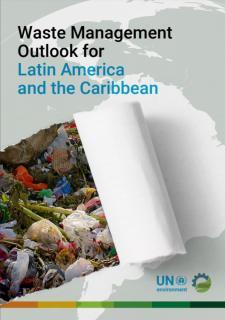
Current trends such as population growth, increased extraction of resources, and unsustainable consumption patterns, all based on a linear economy, have led to multiple environmental challenges at the global and regional levels, which include the proper management of waste, a central issue to be included in regional agendas. In the case of Latin America and the Caribbean (LAC), the region generates approximately 10 percent of all generated global waste. Although waste collection and management systems have progressively improved in recent decades, it is alarming that more than 40 million people still lack access to a basic collection service, and that about a third of all waste generated, about 145,000 tonnes per day, ends up in open dumps, thusly causing serious impacts on health and the environment. On the other hand, it is estimated that only 10 percent of the waste generated is recovered, so that a large amount of valuable material and energy resources are wasted.
The Waste Management Outlook for LAC provides a regional overview of the main trends and challenges relating to waste management, thus serving as a guide for the design and implementation of policies and programs in the countries of the region. The document, which answers to the mandate of the Forum of Ministers of Environment of LAC, as well as the United Nations Environment Assembly, gathers the necessary elements to understand the current situation in the region, while also analysing the models and trends in the governance and financing of waste management. To this end, information provided by the countries of the region was compiled and analysed, including a set of case studies. This document summarises the main findings and key messages of the report, for consideration of decision-makers.
